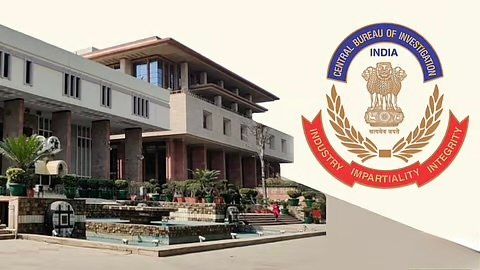In a shocking turn of events, the Delhi High Court has remanded three CBI officials to the custody of their own agency in a sweeping corruption scandal. The case, described as a “large conspiracy,” threatens to undermine the credibility of India’s premier investigative institutions, raising urgent questions about internal oversight and judicial accountability.
A Rare Judicial Rebuke: “Shakes the Edifice of the Machinery”
In an extraordinary development that reflects the gravity of internal rot within India’s investigative apparatus, the Delhi High Court on April 25, 2025, ordered police custody of three senior officials from the Central Bureau of Investigation (CBI). The court ruled in favor of an appeal by the agency itself after a trial court initially refused the plea for custodial interrogation.
Justice Neena Bansal Krishna minced no words in her order, stating that this is one of the unique cases of rampant corruption in CBI, ED and other departments, which shakes the entire edifice of our executive and the investigating machinery. The case involves serious allegations that top officials within these very agencies accepted bribes to manipulate and interfere with ongoing investigations.
The High Court’s intervention is seen as a judicial admission of how deep corruption runs in agencies constitutionally mandated to root it out. By granting two days of police custody, the court underscored the need for urgent interrogation to unearth what it described as a “larger conspiracy.”
ALSO READ: Call for Cyber Experts: Join FCRF Academy as Trainers and Course Creators
The Bribe Trail: Rs 50 Lakh Demand and Digital Evidence
The case stems from a complaint alleging that CBI officials demanded Rs 50 lakh to “settle” two cases, a demand eventually negotiated down to Rs 35 lakh. In another related case, an official in the Finance Ministry allegedly sought a Rs 50,000 bribe via Google Pay to influence Enforcement Directorate (ED) officers.
One of the CBI officers was reportedly caught red-handed accepting Rs 3.5 lakh on behalf of another, confirming the allegations through direct monetary trails. The extent of the rot became apparent as multiple departments and officials were mentioned in what the court termed a “non-standalone” conspiracy, suggesting it wasn’t an isolated case of wrongdoing.
According to the complaint, these officials were systematically compromising investigations by accepting bribes and offering favorable outcomes to those under scrutiny—turning India’s anti-corruption watchdogs into players in the very crimes they were meant to eliminate.

System on Trial: Fallout and Far-Reaching Consequences
The case places not just the accused individuals but the institutional integrity of the CBI and ED under public and judicial scrutiny. CBI’s plea for a 10-day remand of the accused was based on the claim that these officials were attempting to manage the investigation from within, potentially obstructing justice.
The Delhi High Court refused to accept the argument that the interrogation was a ploy to extract confessions. Instead, it emphasized the imperative need to probe the accused thoroughly noting that grave offenses such as these, if left unchecked, risk letting individuals take the administration of justice for a ride.


